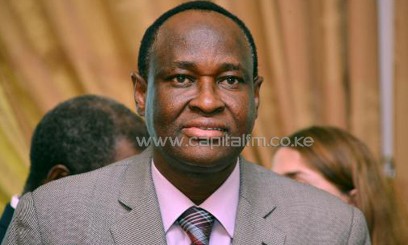BAMAKO, Jul 17 – The chief negotiator in a ceasefire deal with rebels paving the way for presidential elections across Mali said Tuesday he had withdrawn from the race less than two weeks before the watershed vote.
Tiebile Drame, architect of the Ouagadougou Accord enabling Malian troops to secure polls in the Tuareg-held northeastern city of Kidal, said the deeply divided country was not ready to run a credible election.
“I decided to withdraw my candidacy for the July 28 election because the conditions for a fair vote are not in place,” Drame told reporters in Bamako.
He said the election law had been violated because no electoral register was available in Kidal by June 25.
Drame, a former minister and leader of the Party of National Revival (Parena), added that going ahead on July 28 would be “to deny many Malians their right” to vote.
Drame has petitioned Mali’s Constitutional Court for a postponement of the elections but, with 11 days to go, its justices have not yet ruled on the request.
“We went to the court hoping for a decision but since none has been forthcoming I’m withdrawing my petition and I’m withdrawing my candidacy,” he said, while vowing to do nothing to hinder the election.
The occupation of Kidal by the National Movement for the Liberation of Azawad (MNLA) has been a major obstacle to organising the election, seen as crucial to Mali’s recovery from the conflict of the past 16 months.
The decision to hold the first round on July 28, possibly followed by a second round on August 11, was taken by the Malian government under pressure from the international community, and especially former colonial power France.
Drame blasted “interfering” French officials, singling out Foreign Minister Laurent Fabius who he said had effectively become “the director of elections in Mali”.
Malian military officers staged a coup in March last year after being overpowered by an MNLA rebellion.
The Tuaregs seized key northern cities before being sidelined by their Al Qaeda-linked allies who imposed their harsh version of sharia law in towns under their control.
The MNLA sided with a French-led military offensive, which reclaimed most of the lost territory from the Islamists, but the Tuaregs have been reluctant to allow government troops into Kidal for the vote.
The rebels and government agreed as part of a ceasefire deal brokered chiefly by Drame to halt hostilities and on July 5 soldiers entered Kidal while the rebels were confined to camps.
But the presence of the Malian army has stoked tensions in the powder keg town, with pro- and anti-government protests a regular occurrence and several troops injured by demonstrators.
UN Secretary General Ban Ki-moon said Monday that even if the presidential election was “imperfect”, the results “must be respected”.
Mali’s acting president Dioncounda Traore, who is not among the 28 candidates vying to be the next head of state, has also acknowledged that the election would not be perfect, “much less in a country in crisis”.










































